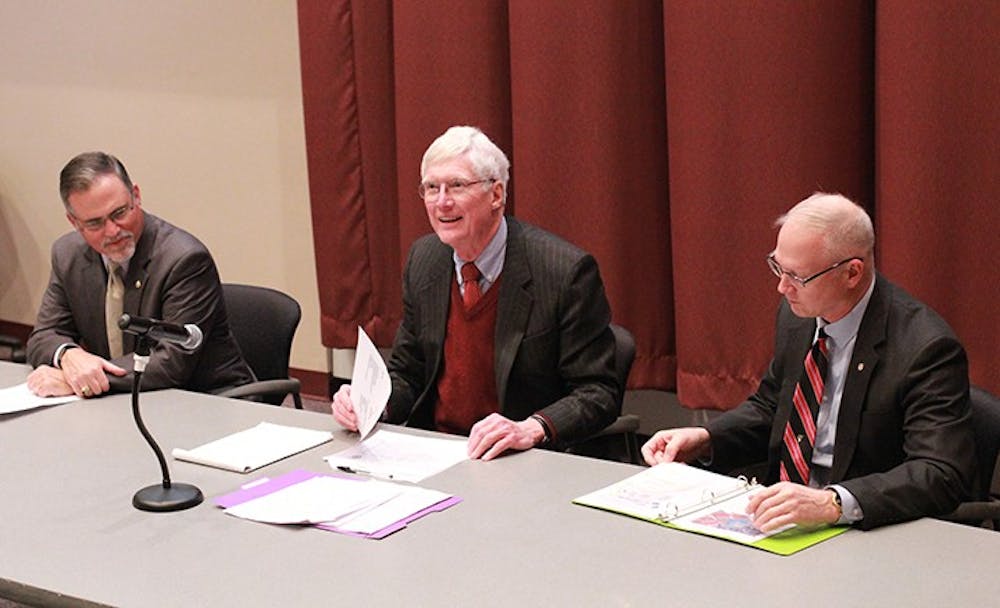The Shippensburg University Grove Forum was filled with students, faculty and community members, leaving standing room only, last Thursday for a presentation and guest panel hosted by the political science department.
The topic of the presentation and panel was “American Foreign Policy: How Modern American Shapes — and is shaped by — the World: The United States, a Changing World and Diplomacy, Security and Intelligence in Pursuit of National Interests” guest panel.
The panel consisted of three members who together have more than 100 years of experience in foreign policy and national security: retired foreign service officer J. Sherwood McGinnis, retired Col. Jim Boling and retired career national intelligence officer John Aclin.
After brief introductions, McGinnis began by describing to the audience what his career was like in diplomacy.
“Relationships matter. They need development and maintenance,” McGinnis said.
A recurring theme of the night was the importance of diplomacy.
The panelists agreed that diplomacy grows more important each day.
“[Diplomacy] relates to daily life. We live in a world where as a nation everything counts. An individual can no longer just make a single decision without affecting many people,” McGinnis said.
McGinnis also briefly shared his experiences as political adviser to the commander of the North Atlantic Treaty Organization (NATO) forces in Afghanistan before encouraging students to think about careers in diplomacy.
“The system needs people that are well-trained and who are willing to talk about issues with others, to reach some sort of an agreement,” McGinnis said.
Later, Boling spoke about his experience with the Army and the Department of Defense.
He also reinforced the importance of diplomacy and relationships with foreign leaders.
“They won’t trust the message if they don’t trust the messenger,” Boling said. “The quality of the relationships is vitally important.”
The final panelist to present was Aclin. He discussed the precision that is needed for the sharing of information.
“We share information with our allies and those we want to collaborate with but not too much,” Aclin said. “It is important to find the balance.”
Aclin told the audience that patience is needed when working in the intelligence field.
“The CIA is like milking a cow, you get an almost full pail of milk, then the cow moves its tail and knocks and spills everything,” Aclin said.
All three panelists agreed that their careers were not always easy, but they were extremely rewarding.
“You cannot achieve bliss without risk,” Aclin said.




The Slate welcomes thoughtful discussion on all of our stories, but please keep comments civil and on-topic. Read our full guidelines here.